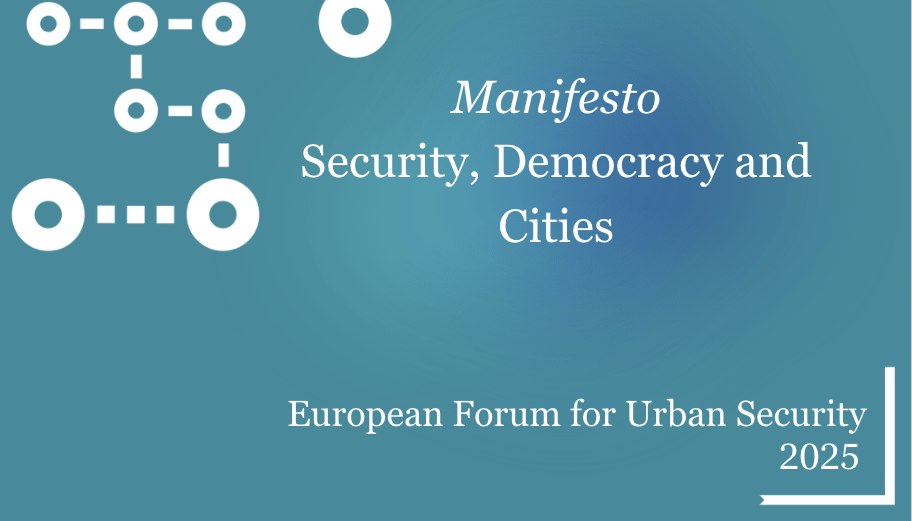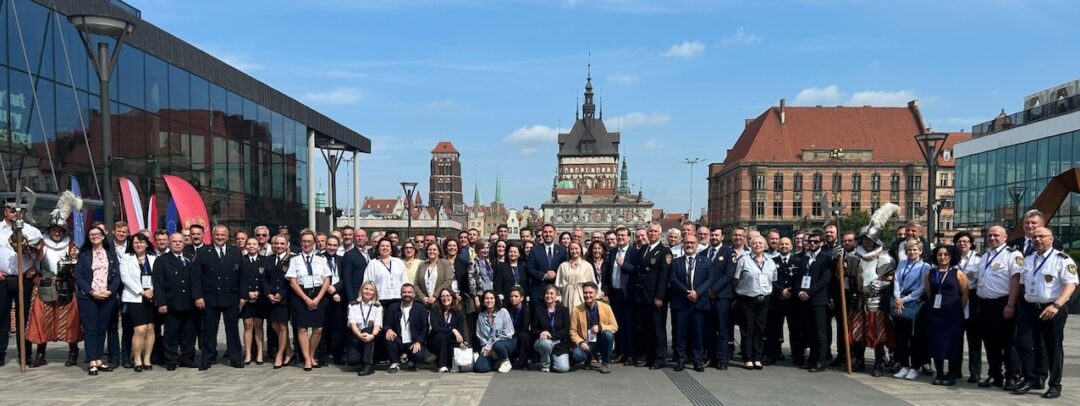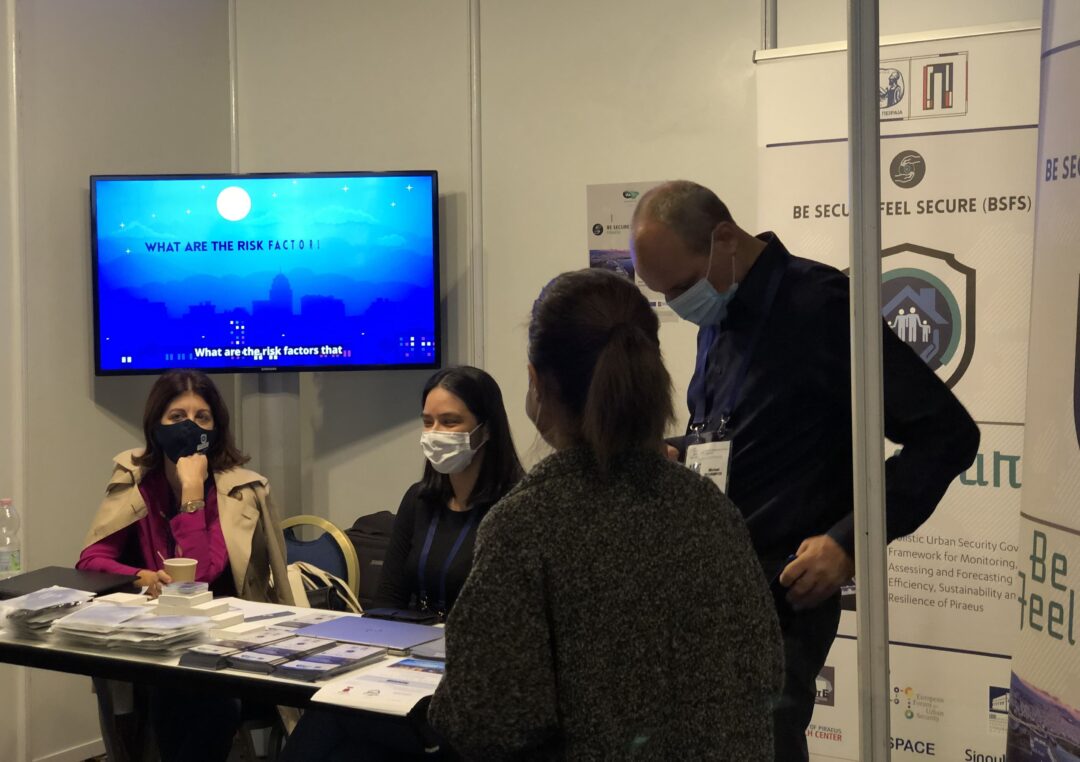Paris, France, January 2025 – The European Forum for Urban Security’s (Efus) Security, Democracy and Cities manifesto is the reference document for all the stakeholders and institutions that collaborate with or are interested in Efus. It expresses the principles on which Efus bases its work and includes extensive practical recommendations for European local and regional authorities and urban security stakeholders. These recommendations are illustrated by real life case studies.
Why an updated version
The social and political background in which Efus member local and regional authorities are working evolves with time; criminal activity and responses to crime also evolve, in particular, but not only, with the increasingly widespread use of new technologies. On the other hand, citizens’ expectations change with time, as does national and European legislation. All these factors shape the urban security landscape and hence Efus’ work.
This is why it is important that we periodically revise and update our manifesto according to our members’ priorities and needs. We did just that following our last Security, Democracy and Cities conference, in March 2024 in Brussels. Our new 2025 manifesto is now available.
The previous version was published in the wake of the Security, Democracy and Cities conference in Barcelona and Catalonia, in 2017. In the meantime, following the 2021 Security, Democracy and Cities conference in Nice, Efus adopted a Declaration that took stock of the evolution of urban security issues and the need to better recognise and support local and regional authorities’ efforts to prevent and counter crime in all its forms.
Three questions to Elizabeth Johnston, Efus Executive Director

Why does Efus produce a manifesto?
Elizabeth Johnston: Ever since it was established in 1987, Efus has based its work on a political vision, which is that urban security must rely on a balance between prevention, sanction and social cohesion. This vision is shared by all our member local and regional authorities, inspired by their experience on the ground as the level of governance closest to citizens, and by their pragmatic approach. This vision is what unites all our members beyond their political affiliation.
Urban security is an issue that can be divisive, whether at the national or European level. It is a matter for permanent debate in every EU member state and within the European institutions themselves. Given the current political situation in Europe, we feel the need to strongly reaffirm some fundamental principles, particularly the fact that security is a common good and a key component of democracy, which must be locally co-produced among all stakeholders and with the active participation of citizens.
“The manifesto is a roadmap that local and regional authorities can refer to for their urban security policies and programmes.”
How can local and regional authorities use Efus’ manifesto?
The manifesto is a roadmap that local and regional authorities, wherever they are, can refer to when drawing up their urban security policies and programmes. Local and regional governments change with each new election, their political affiliation may vary, as do the municipal and regional staff. On the other hand, Efus’ manifesto includes knowledge and practices that we have accumulated over nearly 40 years. Obviously, issues and the way we approach them have evolved over time, but some principles remain and we feel it is important to reaffirm them.
The manifesto is a short document of only four pages that highlights key insights regarding the political approach to urban security, as well as our priorities.
What are the manifesto’s practical recommendations?
These recommendations complement the political part I’ve just talked about. They are organised in 18 topics, from police to nightlife, drugs&addictions and innovation&technology, to mention just a few. So, they are easy to use. We will update them or add new ones whenever the need arises.
These recommendations are based on our member local and regional authorities’ actions and the insights we’ve gained from their experience, but also on our own initiatives over the years as well as on the European projects we have either directed or been a partner in.
For each topic, we have strived to gather key insights that could interest any type of local or regional authority, whatever their country and specific urban security issues. Furthermore, we have included in each topic a few examples of practices developed by our members that can be of interest for other local or regional authority. Indeed, Efus’ core mission is to organise direct exchanges among European cities on their urban security issues and the responses they put in place.
> Read or download the Security, Democracy and Cities manifesto
> More in our Manifesto section





